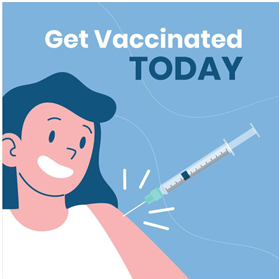Important Facts About Adult Vaccination
Millions of adults worldwide are becoming seriously ill and are rushed to hospital for diseases that are easily avoidable with vaccines. Adult vaccinations are indeed crucial because communicable diseases account for more than 25% of overall deaths. As per the World Health Organization (WHO), global vaccination coverage remains at 85 percent, with no significant increase over the last few years. An additional 1.5 million deaths can be prevented by increasing adult vaccination coverage.
Adults are more susceptible to diseases such as influenza (flu) and pneumococcal disease. Childhood vaccination protection may carry off along with time in some cases, such as diphtheria. As a result, a booster vaccination for diseases like tetanus/diphtheria is advised every ten years.
Moreover, due to age, lifestyle, job, health condition, or vacation plans, adults may be at risk of new and different diseases. Adults who work in health care settings, for instance, seem to be at risk of hepatitis B, adults with these chronic health conditions are at risk for pneumococcal disease, and adults who travel extensively are at risk for certain diseases that would not exist in India, such as yellow fever.
By lowering your risk of transmitting disease and spreading it to others, vaccination helps to protect you. This may also help protect those who cannot be vaccinated, such as people with certain medical conditions and newborns. One of the most effective and economical steps we can take to safeguard ourselves against potentially deadly diseases is vaccination. Not just children should receive vaccinations. In reality, there are specific ages in adulthood when the vaccine is necessary.
Vaccines can easily prevent millions of adult cases of serious illness that lead to hospitalization. Vaccinations are still essential as you become older. Regular adult vaccinations actually improve the impact of childhood vaccinations, boost immunity for more recent illnesses, and further defend against diseases when your antibody is weakened.
Adults are advised to get their prescribed vaccinations based on their age, health history, occupation, lifestyle, forthcoming travel plans, and past vaccinations.
Vaccines Recommended For Adults
Flu Vaccine
The most common form of the flu vaccination is given as a shot; Occasionally, it is given as a nasal spray yearly. Typically, in flu season, the vaccine is provided, even if they have any medical cause just to not, every person should have this vaccination.
Pneumococcal Vaccine
The pneumococcal vaccine is given as an injection. These vaccinations come in two varieties. Both immunizations are required for healthy adults over the age of 65. Your prior vaccinations may have an impact on the timing and order of these shots.
Doctors advise taking another dose five years after the first for those with chronic renal disease or other illnesses.
Generally speaking, persons 65 and older are advised to have this vaccination. If you are under 64, then, you need this vaccine if you:
- a. Smoke
- b. Have Asthma
- c. Live in a long-term care facility or a nursing home
- d. Take medicines or treatment that makes you more prone for an infection. These include radiation therapy, steroids and some cancer drugs.
- e. Have long-term conditions like lung disease, diabetes, heart disease, a cochlear implant, cirrhosis, sickle cell disease, leaks of cerebrospinal fluid or alcoholism
Have a disease that reduces your body’s defenses against infection, such as lymphoma or leukemia, kidney failure, AIDs, HIV and multiple myeloma.
DTP (Diphtheria, Tetanus, Pertussis) Vaccine
All three diseases are preventable with a single dose of DTP, popularly known as the Tdap vaccine. Tetanus and diphtheria are prevented by receiving the Td vaccination. The only defense against these three diseases is a single dose of the DTP vaccination, backed by a Td booster shot every ten years.The vaccination has to be taken by:
- a. Adults up to the age 64 who have not had the DTP vaccine in the past 10 years or at all
- b. Pregnant women, preferably between 27 and 36 weeks of each pregnancy
- c. People aged 65 and above who have not had the vaccine and will be in close contact with a child younger than 12 months
- d. Anyone who has not had a tetanus shot in the past 10 years and has already taken a DTP shot should get a Td vaccine
SOURCE: Based on Information Gathered and CDC Guidelines are extracted from Online
Know More Book Now Inquire

